Here’s why Croatia’s Makarska Riviera is all about the drama
Historical architecture, high altitude nature parks and imposing canyons – this slice of Central Dalmatia truly is a spectacle to behold
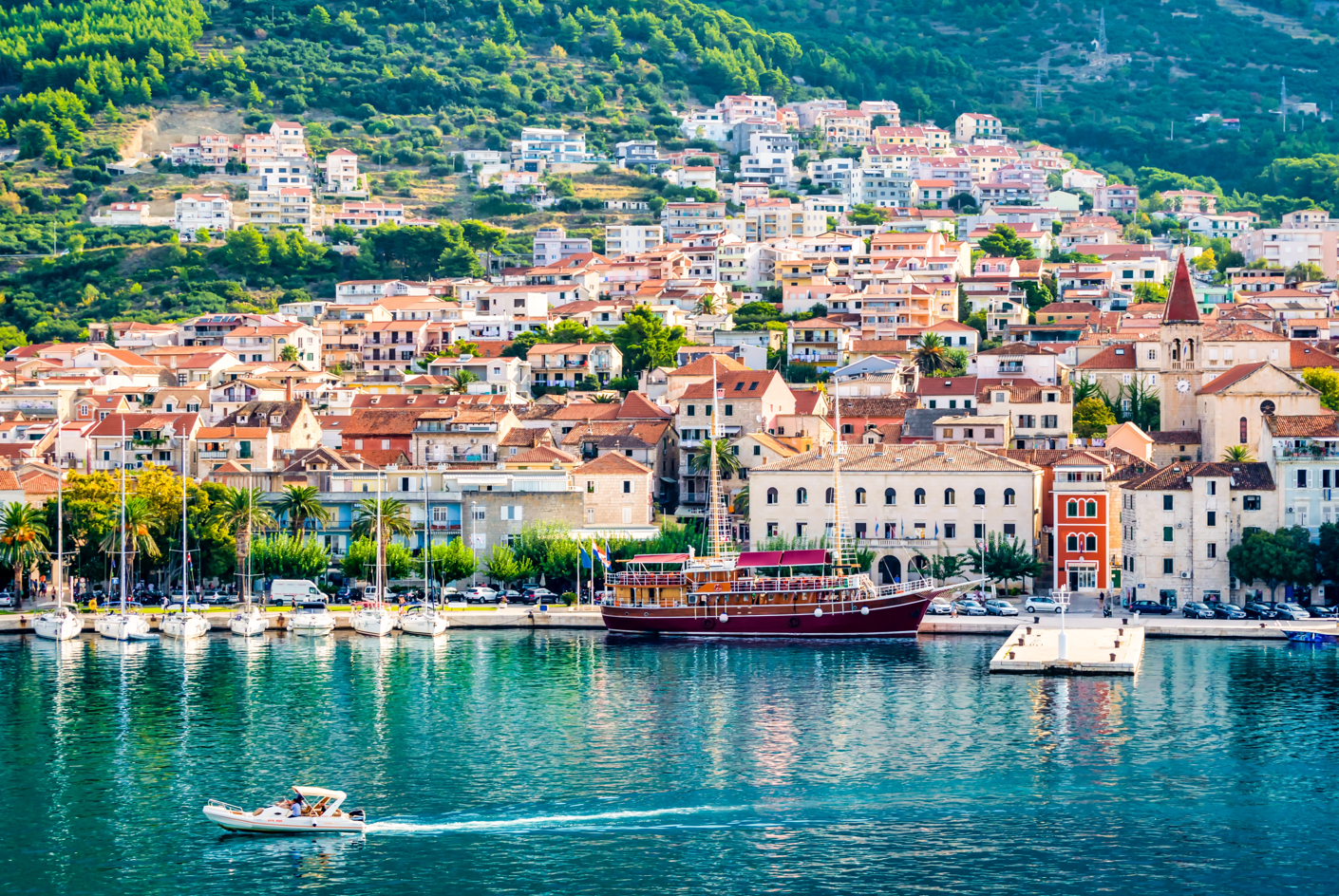
Central Dalmatia’s coastline is packed with drama – and few places more so than along the Makarska Riviera. While pine-shaded beach resorts hug the coast, the magnificent mountains of the Biokovo Nature Park rise above the shore. The contrast is extraordinary: a barren limestone range hovering over the deep blues and greens of the Adriatic Sea.
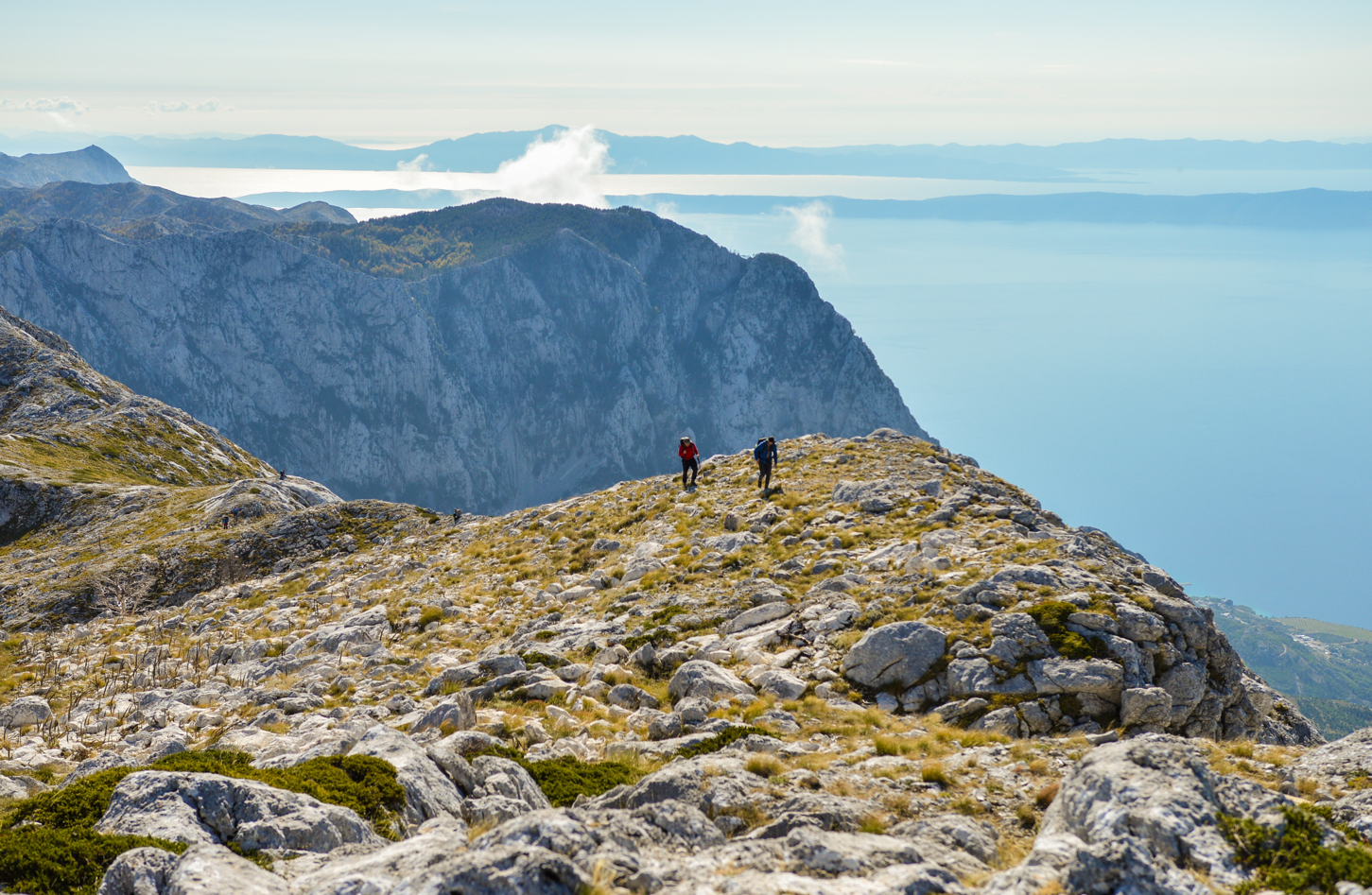
Amid all this drama are some of Croatia’s best-loved beach resorts and historic towns, which go hand in hand with some of Central Dalmatia’s most exhilarating adventure playgrounds. I start off on a high – literally, as I’m in the mountains of Biokovo Nature Park following the narrow winding roads leading up from the town of Makarska. Cows amble along the roadside while horses snooze in the maquis-covered scrub and black Dalmatian pines. Ahead of me is Sveti Jure, Dalmatia’s highest mountain, which, despite towering over this seemingly bare landscape, is actually accessible via Croatia’s highest paved road. It’s not only a paradise for hikers but also for cyclists and paragliders.
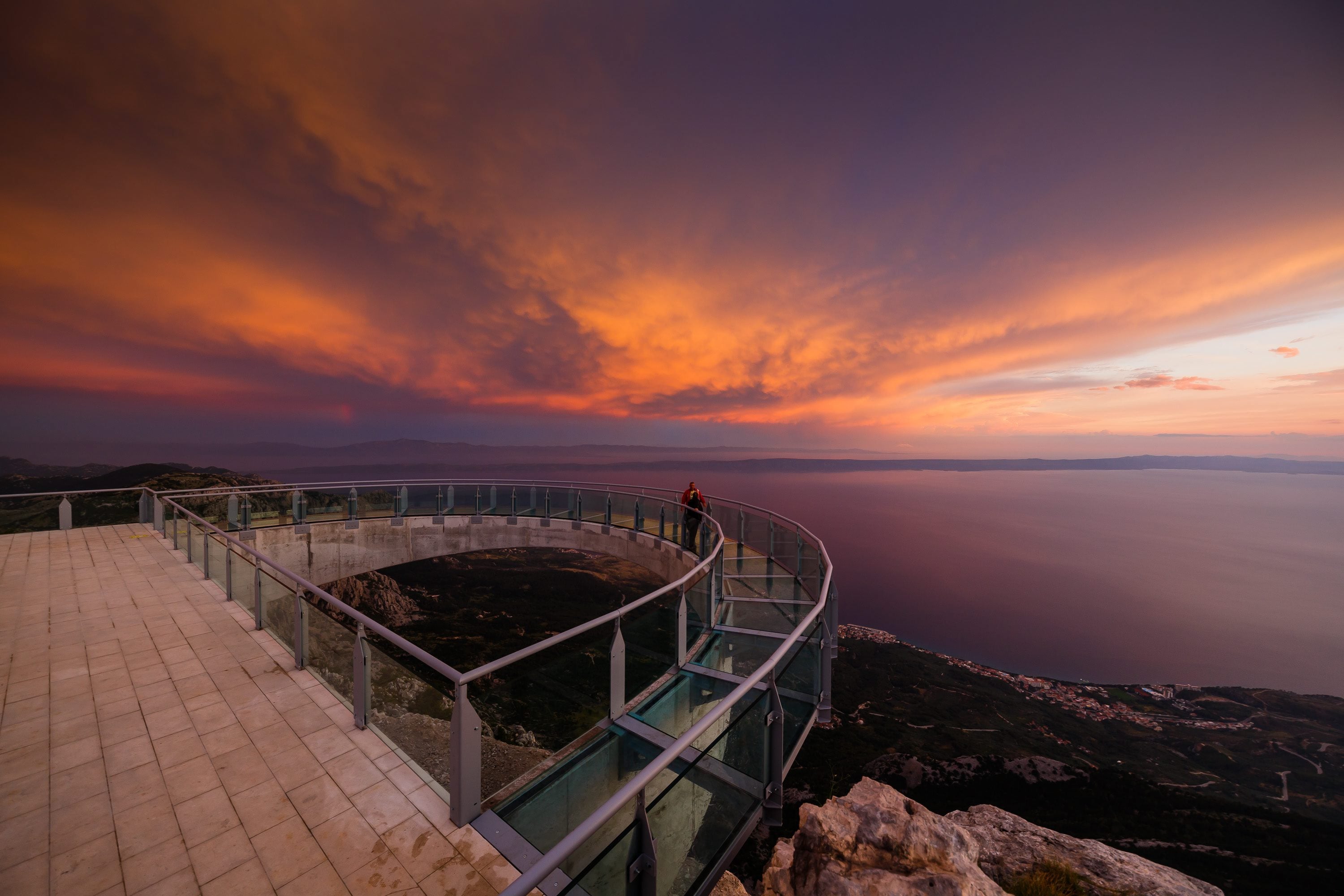
The views of the coastline on hikes to Sveti Jure are astounding, but there’s an easier way to take in some of those vistas. On the way to Sveti Jure is Skywalk Biokovo, a D-shaped observation deck with a glass floor 1,228m above sea level and more than a kilometre up in the air. If you don’t have a head for heights, look away now. If you don’t have a problem, look down – and up – and across – and take in a sweeping panorama of the Dalmatian coast and the islands. I could see the hammerhead-shaped peninsula that dangles off Makarska’s harbour as well as the islands of Brač and Hvar. Looking down I see the scrubby limestone of the cliff and the abyss below, spellbound.
Makarska itself has something that will appeal to all holidaymakers. History lovers can admire the architecture whose legacy shows how the Ottoman, Venetian and Habsburg empires had a hand in shaping Makarska. I pass a 16th-century Franciscan monastery before wandering past the bustling café terraces that line the harbour, filled with locals getting their morning fix of coffee and a chat. Jutting into the harbour is that hammerhead cape I spotted from the Skywalk, its interior a hilly forested park with rugged pathways leading to the little Church of St Peter and rocky beaches.
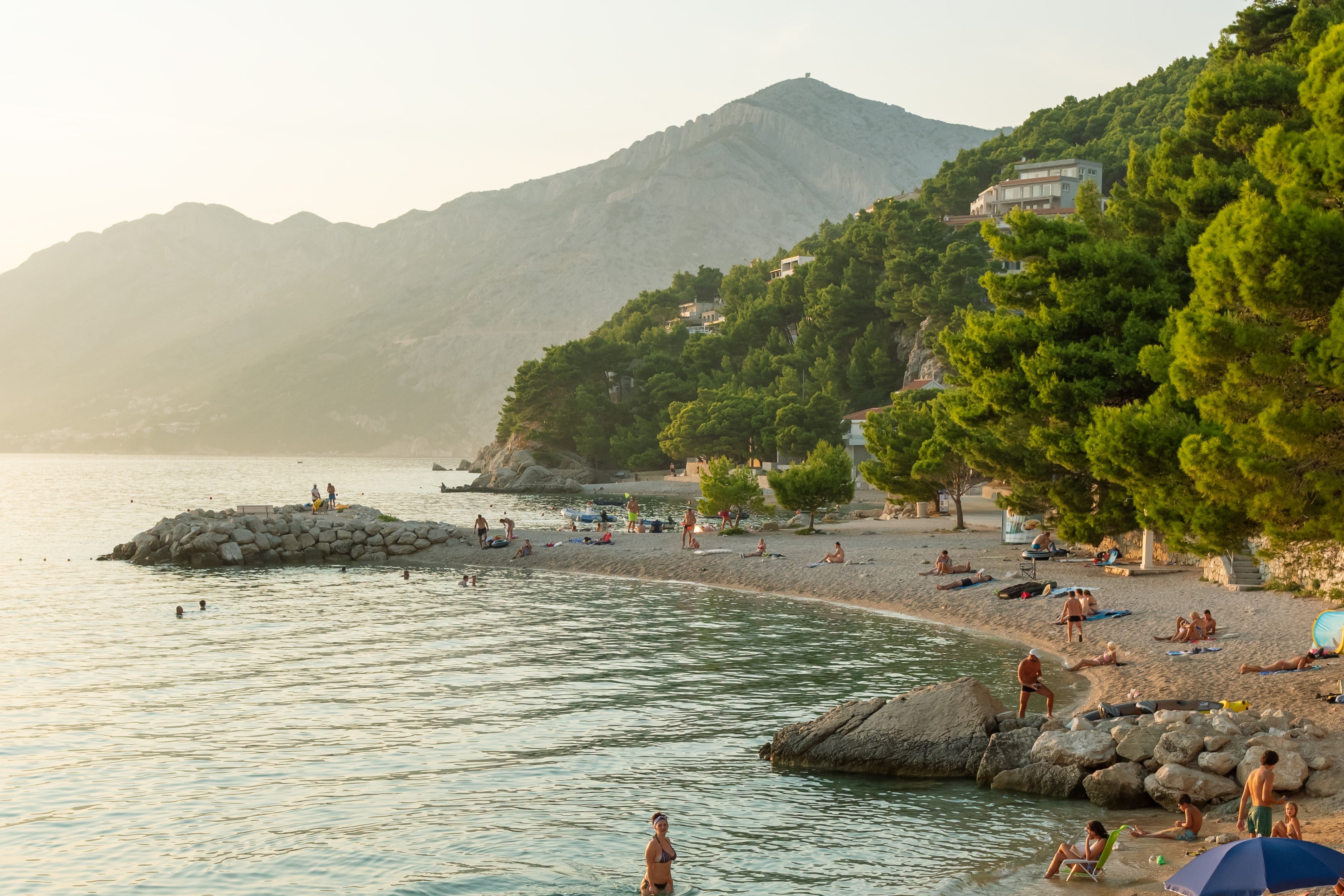
On the other side of the cape is one of Makarska’s biggest draws – an enormous stretch of pebbly beach and all the water sports, cafés and family-focused activities that come with it. For something more rustic, head further south to Nugal beach, which is tucked under pine-covered cliffs.
Makarska’s beaches are just a fraction of what you can find in the Makarska Riviera. One of the most delightful spots to spend a day swimming and snorkelling is in the village of Brela. Follow the paths around Punta Rata to find pine-shaded pebbly beaches leading to the geographical quirk that is the Rock of Brela and symbol of the town – a huge chunk of rock dotted with stunted pines and a favourite spot for a seaside selfie.
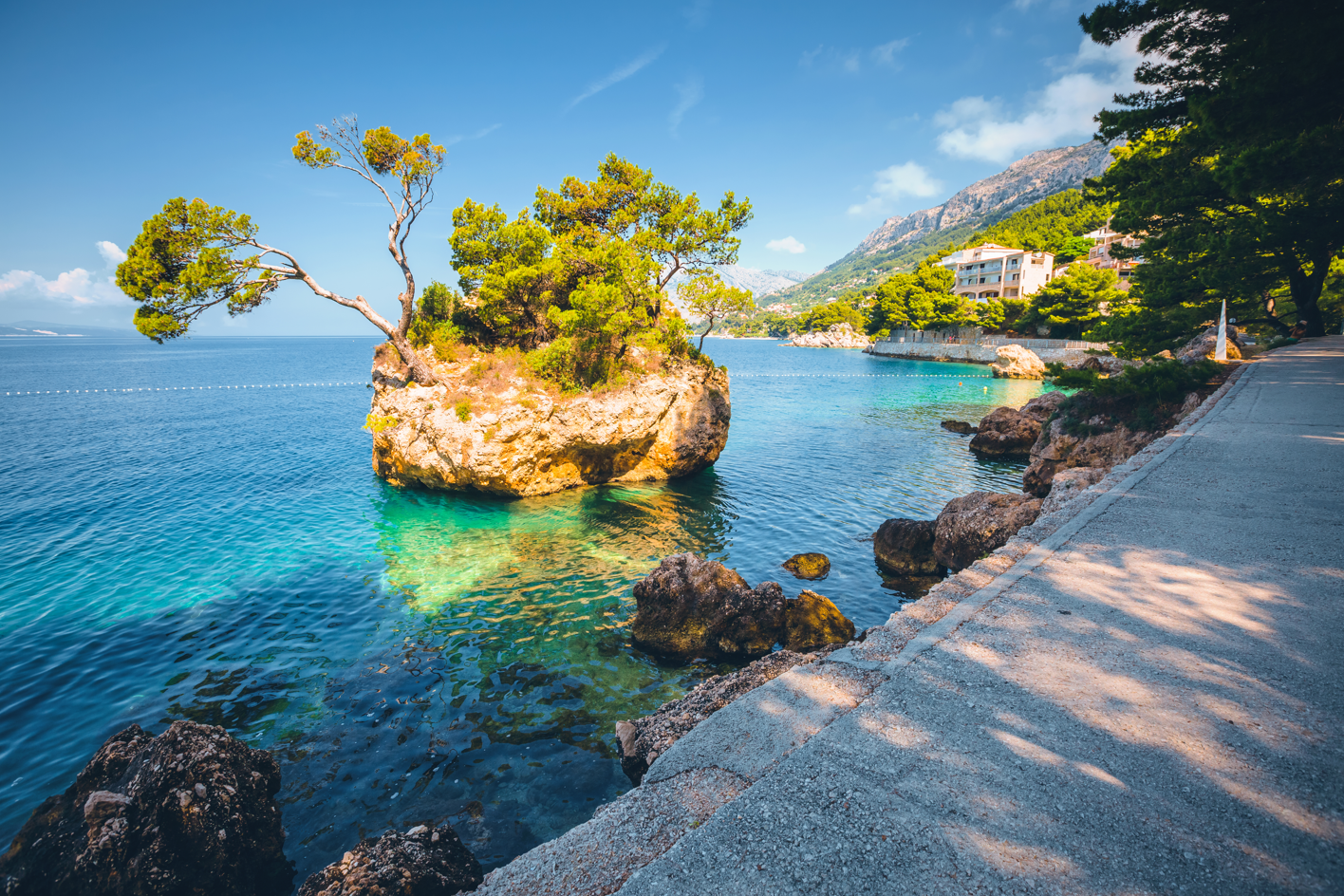
The coast road taking me back to Split leads me to one of Central Dalmatia’s most breathtaking towns. The canyons of the Cetina River slice through the beautiful town of Omiš, whose southern side squeezes in an enchanting Venetian old town before the long stretch of sandy beach takes over. The Cetina attracts rafters and kayakers to its clear waters and occasional series of hair-raising rapids. And there’s one activity no self-respecting adrenalin junkie would turn down: the chance to whiz across the Cetina’s canyons on a zipline. Now that’s drama.
Want to follow in the footsteps of our Croatia travel expert? You can discover more about Central Dalmatia and start planning your trip here

Bookmark popover
Removed from bookmarks